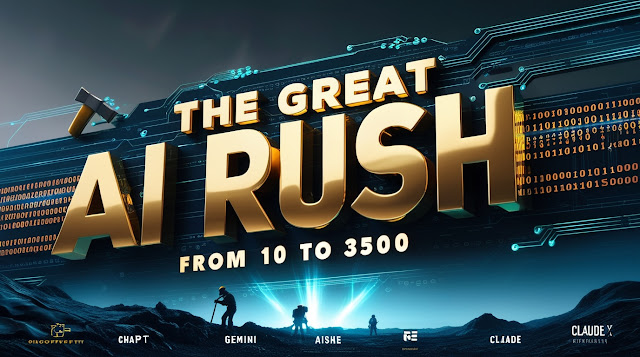Search Blog
Hit enter to search or ESC to close
Trending Now
The Great AI Rush: How OpenAI Went from 10 to 3,500 Employees
- Get link
- X
- Other Apps
Artificial Intelligence: When Smart Machines Got Hilariously Dumb in 2024
- Get link
- X
- Other Apps
Showing posts with the label TOC Theory
Posts
What is Abundant Intelligences? Embracing Diversity in Learning
In recent years, there has been a growing recognition that intelligence is not a single, unitary entity that can be measured by a single test. Instead, researchers have come to understand that there are many different kinds of intelligence, each with its own unique strengths and weaknesses. This perspective has led to the development of the concept of "abundant intelligences" - the idea that there are many different ways of being intelligent, and that we should celebrate and embrace this diversity in our approach to learning. What is Abundant Intelligences? Embracing Diversity in Learning At its core, the concept of abundant intelligences is about recognizing and valuing the many different ways that people can be smart. For example, someone might be a talented musician or artist, while another person might be a gifted athlete or naturalist. These different talents and abilities are all forms of intelligence, and should be celebrated as such. One of the key benefits of embraci...
- Get link
- X
- Other Apps
Abundant Intelligences: Maximizing the Value of Knowledge through TOC and Knowledge Management
In today's rapidly evolving world, knowledge has become a valuable resource that is critical to the success of individuals, organizations, and societies. As such, there is a growing need to maximize the value of knowledge by leveraging advanced technologies such as Artificial Intelligence (AI). However, simply accumulating vast amounts of data and information is not enough. To truly extract the full potential of knowledge, it must be effectively managed, analyzed, and applied in a manner that is aligned with the goals and values of its stakeholders. Abundance of knowledge does not teach to be wise One framework that has gained traction in recent years for maximizing the value of knowledge is the Trinity of Knowledge (TOC) developed by S. Ozcelik, a scientist and researcher. The TOC is a concept that emphasizes the importance of considering the three fundamental elements of knowledge: knowledge, sense, and meaning. The knowledge items include individual knowledge items, each with a ...
- Get link
- X
- Other Apps





